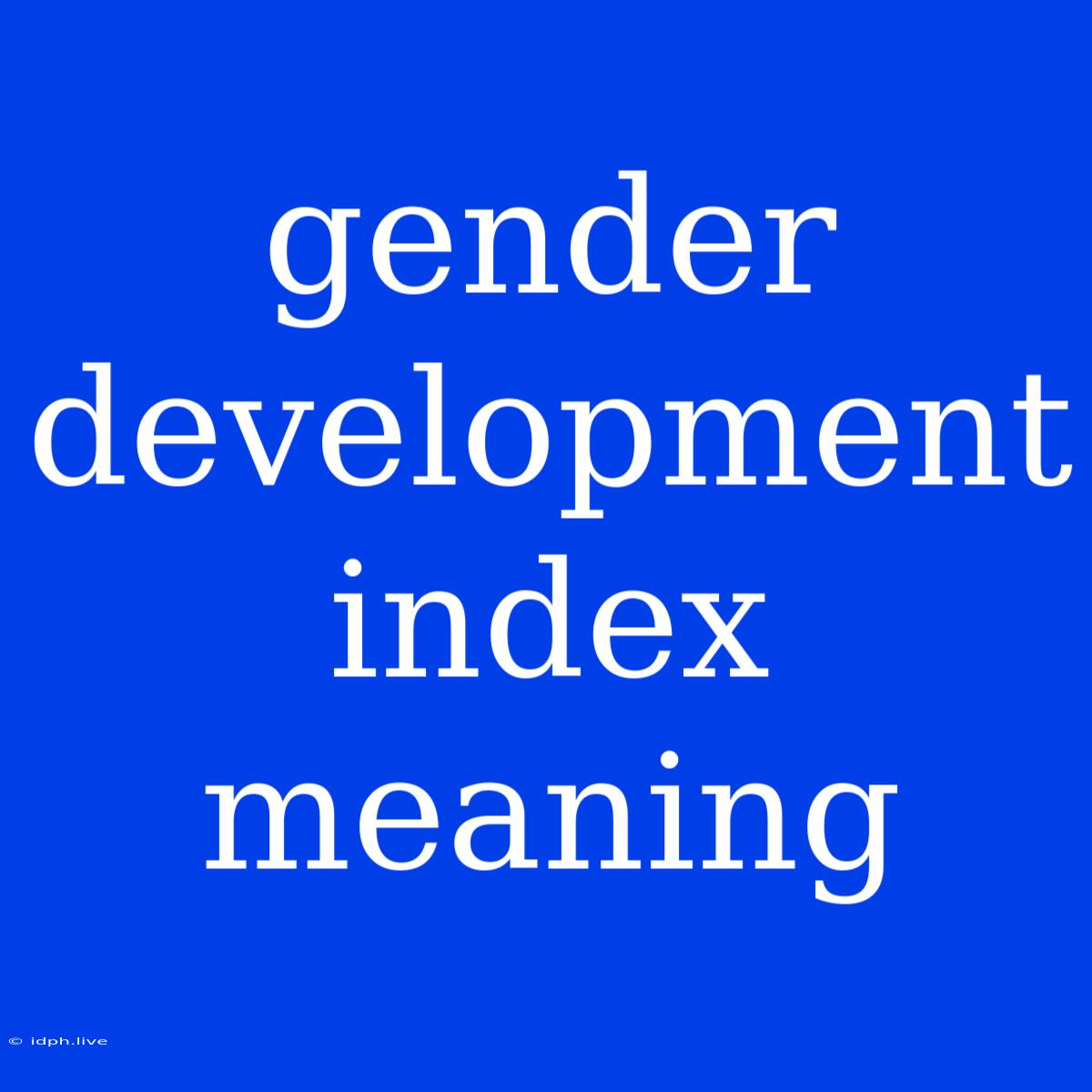Gender Development Index Meaning: Measuring Gender Equality Around the World
The Gender Development Index (GDI) is a crucial tool used by the United Nations Development Programme (UNDP) to measure gender equality across the globe. It's a composite index that assesses the relative achievements of women and men in three key areas:
1. Health:
- Life expectancy at birth: This metric reflects the overall health and well-being of a population, considering factors like access to healthcare and nutrition.
- GDI considers the disparity in life expectancy between women and men within a country.
2. Education:
- Mean years of schooling: This metric measures the average number of years of education received by individuals over 25 years old.
- GDI analyzes the gap in educational attainment between women and men, revealing disparities in access to schooling and opportunities for learning.
3. Economic Participation:
- Gross national income (GNI) per capita: This indicator reflects the overall economic wealth and productivity of a nation.
- GDI assesses the disparity in income per capita between women and men, signifying the economic power and earning potential women enjoy compared to their male counterparts.
How the GDI Works:
The GDI is calculated by comparing the achievements of women and men in each of these three areas. The index ranges from 0 to 1, where 1 represents complete gender equality and 0 signifies maximum inequality.
To calculate the GDI, the UNDP uses the following steps:
- Calculate the average achievement for men and women in each of the three areas (health, education, and income).
- Divide the female average by the male average for each area. This provides a gender inequality ratio for each dimension.
- Multiply the three gender inequality ratios together and then take the cube root. The result is the GDI, a single number between 0 and 1.
What the GDI Tells Us:
The GDI provides a comprehensive picture of gender equality in a country. It helps us understand:
- How much progress has been made in achieving gender equality since the last report.
- Where the biggest challenges lie in terms of women's empowerment and advancement.
- How countries compare to each other in terms of gender development.
Importance of the GDI:
The GDI is a valuable tool for:
- Advocating for gender equality: It can be used to highlight the need for policy changes and investments to address the root causes of gender disparities.
- Monitoring progress: It allows us to track progress over time and see if the efforts to promote gender equality are having the desired effect.
- Promoting accountability: It can be used to hold governments and other stakeholders accountable for their commitment to gender equality.
Limitations of the GDI:
It's important to note that the GDI has some limitations:
- It doesn't capture all aspects of gender inequality: The GDI only considers three areas (health, education, and income) and doesn't address other important issues like political participation, violence against women, and access to justice.
- It's a snapshot in time: The GDI is based on data collected at a particular point in time and may not reflect the dynamic nature of gender equality.
Conclusion:
The Gender Development Index is a powerful tool for measuring and understanding gender equality across the globe. While it has its limitations, it serves as a valuable benchmark for countries to assess their progress and identify areas where action is needed to achieve true gender equality. By understanding the meaning of the GDI and its implications, we can work towards a more equitable world for all.

